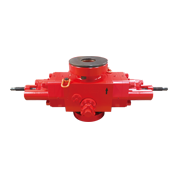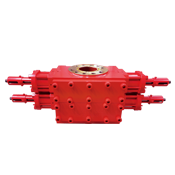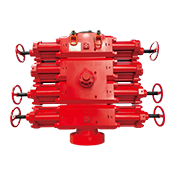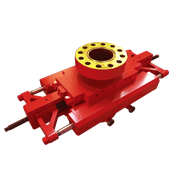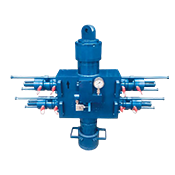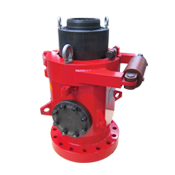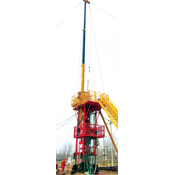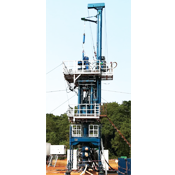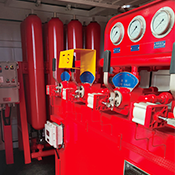Maximizing Efficiency with Customized Liquid Double Control Type Blowout Prevention in Agricultural Machinery
2024-10-12
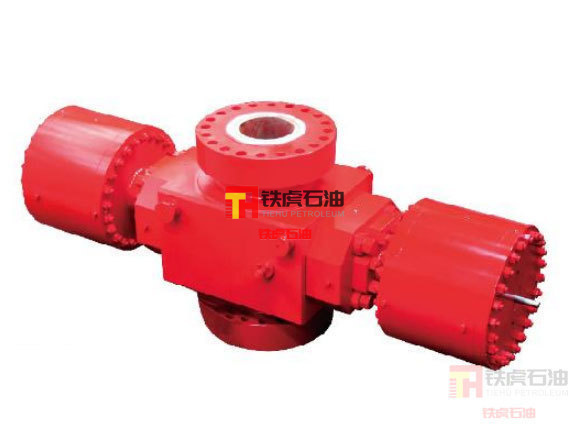
Maximizing Efficiency with Customized Liquid Double Control Type Blowout Prevention
Table of Contents
- 1. Introduction to Liquid Double Control Type Blowout Prevention
- 2. Understanding Blowout Prevention in Agriculture
- 3. Importance of Efficiency in Agricultural Operations
- 4. How Liquid Double Control Type Systems Work
- 5. Benefits of Customized Liquid Double Control Blowout Prevention
- 6. Best Practices for Implementing Liquid Double Control Systems
- 7. Case Studies: Success Stories in Agricultural Efficiency
- 8. The Future of Blowout Prevention Technology in Agriculture
- 9. FAQs on Liquid Double Control Type Blowout Prevention
- 10. Conclusion
1. Introduction to Liquid Double Control Type Blowout Prevention
In the ever-evolving world of agriculture, the need for **efficient machinery** is paramount. Customized liquid double control type blowout prevention systems have emerged as a crucial innovation in this sector. These systems are designed to prevent blowouts during agricultural operations, ensuring not only the safety of the machinery but also the preservation of valuable resources. This article will explore how these systems function, their benefits, and best practices for implementation in agricultural settings.
2. Understanding Blowout Prevention in Agriculture
Blowouts can occur in various agricultural machinery, particularly in equipment that operates under high pressure. These incidents can lead to hazardous situations, causing damage to machinery and posing risks to operators. Understanding the mechanics of blowout prevention is vital for any agricultural business. Traditional blowout prevention systems may not address the specific needs of modern agricultural practices, making customized solutions essential.
The Role of Liquid Control in Blowout Prevention
Liquid control systems are integral to preventing blowouts. They utilize pressure sensors and valves to manage the flow of liquid, thus stabilizing the operational pressure within the machinery. This precision is crucial for preventing catastrophic failures that can lead to downtime and loss.
3. Importance of Efficiency in Agricultural Operations
Efficiency in agriculture translates to increased productivity and profitability. With the growing global population and the corresponding demand for food, farmers must maximize the effectiveness of their operations. Efficient machinery directly impacts yield, ensuring that farmers can meet market demands while keeping operational costs in check.
Reducing Downtime and Maintenance Costs
By implementing customized liquid double control systems, agricultural businesses can significantly reduce the incidence of blowouts. This reduction leads to decreased downtime, allowing for uninterrupted operations. Moreover, fewer blowouts mean lower maintenance costs, as machinery experiences less wear and tear.
4. How Liquid Double Control Type Systems Work
Customized liquid double control systems integrate multiple components to monitor and regulate liquid pressure efficiently. Here’s a breakdown of how these systems function:
Pressure Sensors and Monitoring
Modern blowout prevention systems employ advanced pressure sensors that provide real-time data on liquid levels and pressure. This information is invaluable for identifying potential blowout risks before they escalate.
Automatic Control Valves
These systems feature automatic control valves that adjust fluid flow based on sensor readings. When pressure readings exceed safe limits, the valves automatically engage to reduce pressure and prevent blowouts.
Feedback Mechanisms
Customized systems also include feedback mechanisms that allow operators to monitor performance continuously. This feature enables proactive maintenance and adjustments, further ensuring operational efficiency.
5. Benefits of Customized Liquid Double Control Blowout Prevention
The implementation of customized liquid double control type blowout prevention systems offers numerous advantages for agricultural operations:
Enhanced Safety
Safety is paramount in any agricultural setting. Customized systems significantly reduce the risk of blowouts, protecting both the machinery and the operators.
Increased Productivity
With fewer interruptions due to equipment failure, farmers can maintain a steady workflow. This consistency directly contributes to increased productivity and better yield.
Cost Savings
Investing in customized blowout prevention systems can lead to significant long-term savings. By minimizing maintenance costs and reducing downtime, farmers can allocate resources more efficiently.
Flexibility and Adaptability
Customized solutions can be tailored to fit specific machinery and operational needs. This flexibility ensures that farmers can adapt their systems to evolving agricultural practices and technologies.
6. Best Practices for Implementing Liquid Double Control Systems
To fully leverage the advantages of customized blowout prevention systems, agricultural businesses must follow best practices during implementation:
Conducting a Needs Assessment
Before selecting a blowout prevention system, conduct a thorough assessment of your operational needs. Understanding the specific requirements will guide you in choosing the right system.
Training Personnel
Educating operators on the functionality and operation of the new systems is essential. Proper training ensures that personnel can effectively manage and maintain the equipment.
Regular Maintenance and Upgrades
Schedule regular maintenance checks and upgrades for the blowout prevention systems. Staying current with technological advancements will enhance system performance and reliability.
7. Case Studies: Success Stories in Agricultural Efficiency
Examining real-life applications of customized liquid double control type blowout prevention can provide valuable insights:
Case Study 1: Increased Yield in Corn Farming
A corn farming operation implemented a customized blowout prevention system that resulted in a 20% increase in yield. With fewer blowouts, the machinery operated more efficiently, allowing for timely planting and harvesting.
Case Study 2: Reduced Maintenance Costs in Soybean Production
A soybean producer observed a 30% reduction in maintenance costs after integrating a liquid double control system. The decreased frequency of blowouts translated into less downtime and fewer repairs.
8. The Future of Blowout Prevention Technology in Agriculture
As technology continues to evolve, so too will blowout prevention systems. The future may see even more advanced features, such as:
Integration with IoT Devices
The integration of blowout prevention systems with IoT devices will allow for enhanced monitoring and data analysis. This connectivity will enable farmers to make data-driven decisions to optimize operations.
Smart Automation
Future systems may incorporate smart automation, allowing for automatic adjustments based on real-time data, further enhancing safety and efficiency.
9. FAQs on Liquid Double Control Type Blowout Prevention
What is a liquid double control type blowout prevention system?
A liquid double control type blowout prevention system is designed to prevent blowouts in agricultural machinery through advanced pressure regulation and monitoring.
How does it enhance safety?
By actively monitoring pressure levels and controlling fluid flow, these systems significantly reduce the risk of blowouts, ensuring operator safety and preventing machinery damage.
What industries can benefit from these systems?
While primarily used in agriculture, these systems can also benefit industries such as oil and gas, construction, and any field involving high-pressure operations.
How often should these systems be maintained?
Regular maintenance checks should be conducted at least quarterly, with additional checks after heavy operational periods or extreme weather events.
Can these systems be retrofitted to existing machinery?
Yes, many customized liquid double control systems can be designed to retrofit or integrate seamlessly with existing agricultural machinery.
10. Conclusion
Maximizing efficiency in agricultural operations is no longer just an option; it is a necessity. Customized liquid double control type blowout prevention systems offer innovative solutions that enhance safety, productivity, and cost-effectiveness in farming. By understanding the technology and implementing best practices, agricultural businesses can thrive in an increasingly competitive landscape. As we look to the future, embracing these advancements will be crucial for sustainable growth and success in agriculture.
PREVIOUS:
Related News
Contact Us
Mailbox:
tiehu@tiehupetro.com
Telephone:
86-317-2616808
Address:
Yanling Industrial Zone, Renqiu City, Cangzhou City, Hebei Province, China

